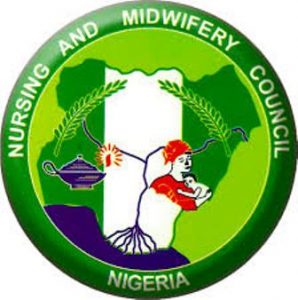-
Modules target improved management of victims of genital mutilation, rape others
ABUJA – The United Nations Population Fund (UNFPA) and Nursing and Midwifery Council of Nigeria (NMCN) on Monday launched new modules targeted at helping nurses and midwives in the country to offer improved care to mothers and children.
Both institutions want the modules, developed by them, to form part of mandatory continuing professional development programme (MCPDP) for the practitioners to enable them effectively operationalize the modules across the country.
Nigerian nurses and midwives undergo MCPDP to enable them renew their practicing license every three years.
At the opening session of a week-long orientation workshop for MCPDP critical stakeholders in all states of the country and the Federal Capital Territory in Abuja, Dr Rabiatu Sageer of UNFPA listed the new modules as clinical management of rape, female genital mutilation, psychosocial support; adolescent sexual reproductive health and youth-friendly services; long active reversible contraceptive; and contraceptive technology update.
Others are emergency obstetric and newborn care, respective maternity care and obstetric fistula prevention; and elimination of maternal to child transmission of HIV.
The workshop sought to unveil and raise awareness on the six new MCPDP modules to get the buy-in of MCPDP critical stakeholders on the new modules; brainstorm and jointly strategize on key actions needed to successfully and fully operationalize the six new modules with the existing MCPDP in all states of the country, Sageer said.
She added that the meeting was to also discuss and agree on the requirements (programmatic, logistic and technical) to bring the new modules to fruition and be well-institutionalized and positioned within the existing MCPDP in all states; develop state action plans for the roll out of the new modules within the existing MCPDP; share state level experiences, challenges, and lessons learned in the implementation of MCPDP with the aim of strengthening MCPDP across all states; and disseminate training resources and share database of resource persons for MCPDP trainings on the new modules.
Speaking with journalists, a former Director at NMCN, Alheri Yusuf, said of the event: “The essence of this programme is to ensure that nurses are equipped with knowledge and skills of these thematic areas that we identified. We believe that updating knowledge is something that must be done regularly.
“Nurses and midwives being the critical mass of health workers in our various facilities are supposed to update their knowledge regularly.
“What we are doing today is to orientate the state facilitators on the mandatory continuing professional development programme so that the nurses in the 36 states of the country and Abuja will be exposed to these modules. It is a prerequisite for the renewal of their licence. And, we believe that at the end of it, we will be able to improve the knowledge and the skills of our midwives as they attend to patients in our various communities.”
Similarly, a senior official at the Education Department of NMCN, Emmanuel Udontre, told reporters at the meeting: “We expect the implementation at the state level. We do not want it to end here. That is why the state facilitators are here. We have some resource persons already identified by UNFPA who are going to be giving the orientation on the new modules. We expect that as the facilitators go back, they will start the implementation at the state level. We want the modules to be rolled out. We want the nurses and midwives to be exposed. We want them to get from the modules so they can improve their practice at the all levels of care.
“The state governments have the state nursing and midwifery committee. It is a statutory commitment of the council at the state level. We expect that they should do a lot of supervision and monitoring. They should work around issues that involve professionalism, ethics and practice of nursing. We expect that they should be doing a lot of work in ensuring that there is compliant with the ethics of the profession.”



